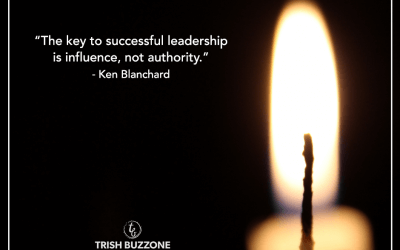Why I Value Thinking Partners
Trusted people who encourage a higher level of awareness increase our capacity to think clearly, to act intentionally, and to lead effectively
As we all transition into a world indelibly changed, much of the conversation around us is about “living in the new normal.” Should we expect more of the confusion and chaotic energy that has permeated much of the past year? Or will we have a foundation of awareness and understanding to build on?
Whatever the answers to these questions are, I want to thrive in that environment. I want to think and act in a way that encourages me to be the person who will do the things that create the life I want to live, and I want people I care about to have the tools to do the same.
This is why, over these past few months, I have separated myself from things and people who invite the chaos and confusion, and I have chosen to focus on those guiding principles I know to be true: fundamental, foundational beliefs not subject to my circumstances. I have also chosen to invest time with thinking partners I trust, people who know me, who understand and support my vision, who will help me stay focused, and who will engage in ongoing conversations that encourage a higher level of awareness.
What is a Thinking Partner?
While the term “thinking partner” is often used interchangeably with “mentor,” there are important differences. In a mentor relationship, one person is seeking a higher level of understanding the other person has achieved. There is a distinct master-student dynamic, rather than a peer relationship.
While both thinking partners and mentors are trusted friends who challenge our thinking and encourage a higher level of awareness, thinking partner interaction is more of a two-way street. Each person contributes wisdom and perspective, actively listens for limited thinking, and offers ideas that help us think bigger and see more clearly. Because of this, each person benefits from the counsel and encouragement of the other.
One of my Thinking Partners, Paul Martinelli, and I talk about unlocking potential.
The Value of a Thinking Partner
When we choose to engage honestly and intentionally with a thinking partner, especially in times of uncertainty and confusion, we put ourselves in the position to view our situation from a different perspective, which often reveals opportunities or issues we might not have seen. This kind of limited vision is common even in less-stressful times, because as we grow accustomed to “What’s Working,” we get stuck in the loop of our own comfortable inner monologue, and we fail to explore other, potentially better ideas.
A trusted thinking partner brings a fresh perspective that helps us build on what we already have or helps us create a whole new approach. Thinking partners challenge our thinking in a way that draws us out of our comfort zone; reveal faulty assumptions, leading to shifts in how we think about ideas, view challenges, and approach solutions; and instigate innovation, creativity, and inspiration.
As we let go of preconceptions and assumptions and allow the mutually-beneficial listening and sharing to work, these interactions lift the lid on our limited thinking and reveal unexplored ideas and opportunities we may otherwise miss. In this way, my thinking partners continue to help me maintain focus, be positive, and stay strong as we all move forward together.
Who are your thinking partners, and how have they helped you?
A version of this article was originally published in the July 2020 issue of Sandpoint Living Local / Coeur d’Alene Living Local.
Creating the wake
I’ve been thinking about the emotional energy we exchange in our conversations and how this energy affects our relationships. That cause and effect reminded me of something I read in a book by Susan Scott called Fierce Conversations: “The conversation is...
“Once she labeled me”
Have you ever found yourself so angry with a friend or colleague, so shocked at what they said or what they did, that you wondered if your relationship could survive? Ginny found herself there after an ugly argument with an old friend. Her story, shared...
Pushing Through Most People’s #1 Fear
Pushing Through Most People’s #1 Fear How to respond when that voice inside whispers we’re not good enough Recently, a friend interviewed a successful marketing company CEO named Tomo about how he got his start as a writer and marketer. During the...
Dreams Are Not Fulfilled in a Vacuum
Dreams Are Not Fulfilled in a Vacuum The shift from doing our work to living our dream often involves connecting with the best in others My friend sat across from me, and I could tell she had something on her mind. I waited, watching this...
Everything Rises and Falls on Leadership
In the modern classic Disney film, Remember the Titans, one of the most pivotal scenes involves two talented, influential rivals coming to loggerheads over who is responsible for spreading toxicity on their team. When team captain Gerry Bertier confronts...
Do the Thing and Then You’ll Get the Energy
Do the Thing and Then You’ll Get the Energy Rediscover your purpose and motivation by releasing the kinetic power of strategic tension Recently, it’s been a struggle to find my motivation to get out and do things, even things I love to do. Based on some...








0 Comments